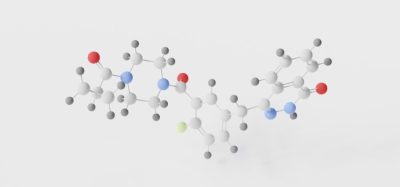Future bleak for Novartis’ Panobinostat in relapsed/refractory multiple myeloma, says GlobalData analyst
Posted: 21 November 2014 | | No comments yet
The vote against the recommendation that the US Food and Drug Administration (FDA) approves Novartis’ panobinostat (Farydak) for use in relapsed/refractory multiple myeloma by the Oncologic Drugs Advisory Committee (ODAC) signals that a US marketing authorization is unlikely to be granted, according to an analyst with research and consulting firm GlobalData…


The vote against the recommendation that the US Food and Drug Administration (FDA) approves Novartis’ panobinostat (Farydak) for use in relapsed/refractory multiple myeloma by the Oncologic Drugs Advisory Committee (ODAC) signals that a US marketing authorization is unlikely to be granted, according to an analyst with research and consulting firm GlobalData.
The ODAC’s negative verdict was based on results of the Phase III PANORAMA-1 clinical trial, which examined the use of Velcade and dexamethasone in combination with panobinostat, versus placebo, in patients with relapsed/refractory multiple myeloma.
Alongside inconsistent data regarding progression-free survival, no statistically-significant overall survival benefit for panobinostat was determined by either the Novartis or the FDA analysis. Although the FDA does not have to follow the ODAC recommendation, it rarely makes the opposite decision.
Despite this, Jamie Mallinson, Ph.D., GlobalData’s Analyst covering Oncology and Hematology, states that there is still a place for panobinostat, provided that Novartis reconsiders the dosing strategies that will be used in future trials. Key Opinion Leaders (KOLs) believe this will improve the drug’s toxicity profile.
Mallinson says: “KOLs interviewed by GlobalData stated that there is a real need for drugs with new mechanisms of action. However, the development of such agents is always fraught with risk.
Panobinostat development “challenging”
“Panobinostat was the first histone deacetylase inhibitor investigated in multiple myeloma, but its development has proven challenging, as exemplified by the latest ODAC verdict on the drug.”
However, the analyst asserts that there are other drugs in Phase III clinical trials waiting to fill the void left by this setback, and KOLs are particularly excited about the first generation of monoclonal antibodies (mAbs) for multiple myeloma. These include Janssen and Genmab’s CD38-targeting antibody, daratumumab, and the anti-CS1 antibody, elotuzumab, from Bristol-Myers Squibb and AbbVie.
Mallinson continues: “The future is still bright for multiple myeloma patients, as mAbs tend to be selective for their biological target and are therefore well tolerated. There are also new oral proteasome inhibitors on the horizon, which will be particularly useful in more elderly and frail patients.
“The question now is whether Novartis will continue to pursue panobinostat’s development to maintain its lead over potential competitors in the rapidly-evolving multiple myeloma treatment market.”








